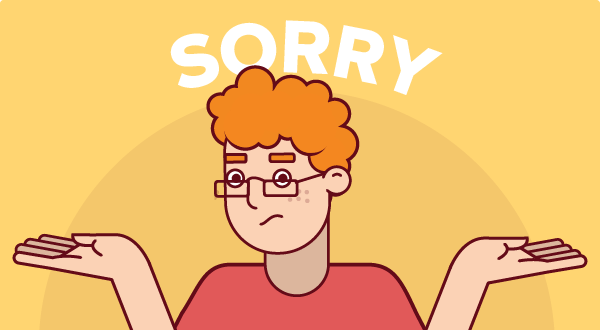Wil Schroter

Breaking up with investors at the end of a failed startup journey is basically every Founder's worst nightmare. It's that awful conversation we did everything in our power to avoid. We rehearsed it over and over while starting at the ceiling at 3 AM. And yet, here we are.
How we break up with investors is as important as how we built the relationship to begin with. That's because in the startup world, building long standing relationships among key players, including investors, is all about treating those folks with respect at every step of the journey — even the shitty ending part.
We need to own the outcome
This is no time to point fingers. It was our job to create a successful startup; it didn't work out — we have to own that. This is the time for full contrition and ownership.
We start by saying "I'm really disappointed that we didn't build what we all set out to build, and that outcome is 100% on me." It doesn't matter if some random customer backed out, or an investor didn't participate in our last fundraising effort. All of the outcomes are our responsibility, and we have to own that.
When we start pointing fingers we open up a different conversation about "blame," which, to be honest — is gross. It makes us look cheap and undermines the confidence and responsibility we were entrusted to begin with. It's not a good look, and we don't get to play that card as Founders.
We need to let the investor be heard
Investors put time and money into our deal, and now both of those are gone. If nothing else, we owe it to them (and also to ourselves) to hear what they have to say about it. In all my experience with investors, it has never turned into the bitch fest chew out that we think it will be. It's more of a consolation, especially with the best investors.
Investors want to know that we're listening to their feelings on the deal. They will often add some parting advice that we really ought to hear, because even if we don't agree with it now, it's part of our entire learning experience in the startup journey.
We need to leave the relationship on a positive note
It's hard for us to think about leaving the breakup conversation with a big warm hug after we just told someone they aren't getting a huge sum of money back. But how we end things is how the relationship will be remembered. If we leave the relationship sound victimized and abused, taking shots at everyone involved — we're going to poison not only this relationship, but all the other future relationships that investors may be a part of.
Instead, we need to thank investors for their confidence, assure them that we've learned valuable lessons, and let them know we'd be honored to work with them again (unless they were a total jerk, in which case leave the last part out!) — this is how we set the stage to be able to do this again.
In Case You Missed It
What Should I Never Say to an Investor? With our best intentions, we often shoot ourselves in the foot making lofty assumptions or declarations that investors hear all the time and just start shaking their heads. Let's avoid that.
My Startup Stalled — Now What? If our startup has stalled, that doesn't mean we’ve given up on it, it just means we have to figure out where it best fits in our lives.
Am I Safe? (podcast) As a Founder, when the business is struggling it can feel like that struggle is linked to your personal life and your personal safety — and you could suffer greatly as a result.
No comments yet.
Upgrade to join the discussion.
Already a member? Login
